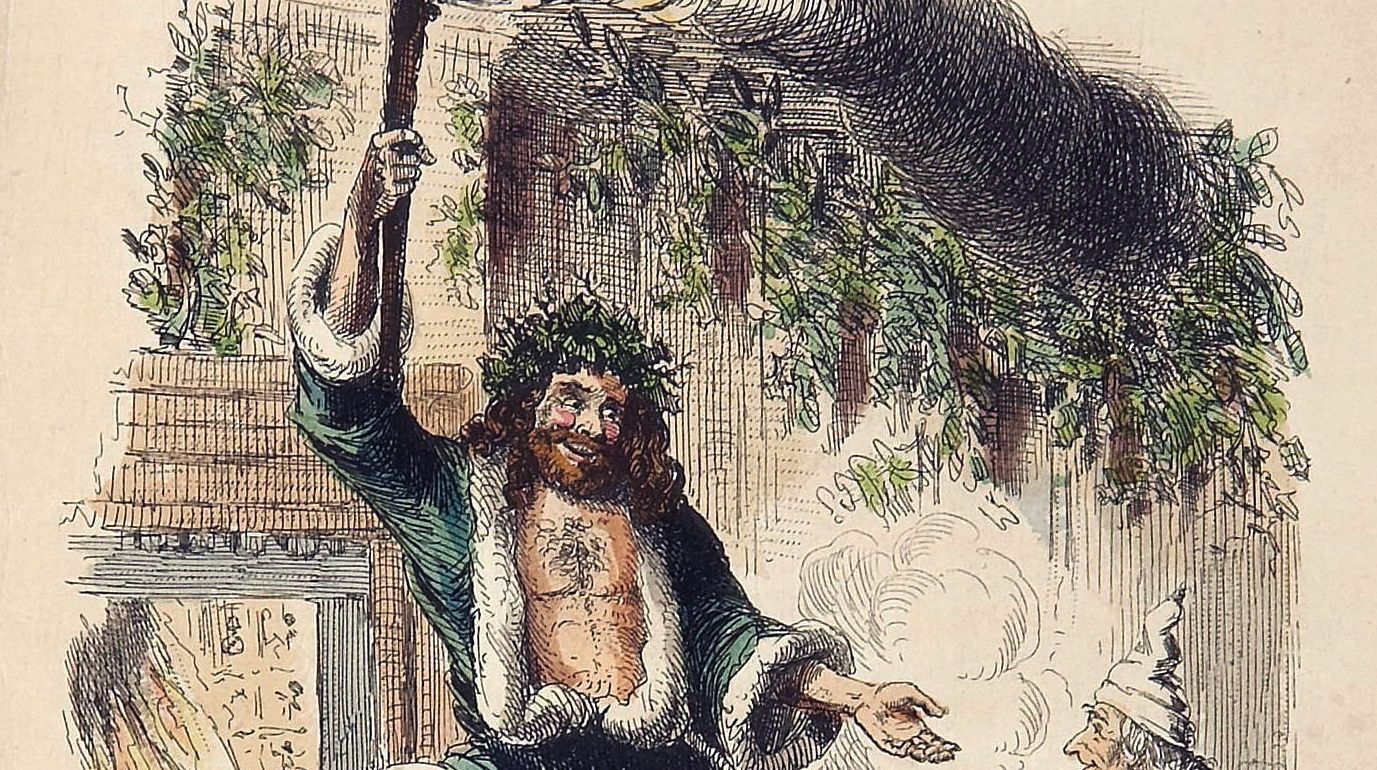A few months ago I became interested in the middle lines of a story, which are usually, but not always, the turning point. I posted on this blog 16 examples of great middle lines, then I went to New Zealand and lost my momentum with novels, not only because I had gone away and come back, but because the novels I read after blog post no. 16 didn’t have great middle lines, or because they were meaningless without adding a substantial whack of the story before and after.
Now, I’ve been reading some short stories about Christmas and have seen some pretty good turning points in their middles. Four of them are worth blogging about, so between today and Christmas Day I’ll share them with you. In Charles Dickens’ A Christmas Carol, for example, the middle lines of the middle chapter are meaningful. Perhaps even great. Here, Scrooge is with the Ghost of Christmas Present, and from this page on he will never be the same:
“Spirit,” said Scrooge, with an interest he had never felt before, “tell me if Tiny Tim will live.”
“I see a vacant seat,” replied the Ghost, “in the poor chimney-corner, and a crutch without an owner, carefully preserved. If these shadows remain unaltered by the Future, the child will die.”
“No, no,” said Scrooge. “Oh, no, kind Spirit! say he will be spared.”
“If these shadows remain unaltered by the Future, none other of my race,” returned the Ghost, “will find him here. What then? If he be like to die, he had better do it, and decrease the surplus population.”
Scrooge hung his head to hear his own words quoted by the Spirit, and was overcome with penitence and grief.

*****

